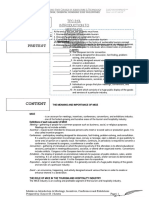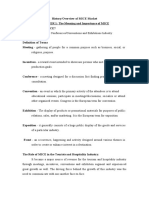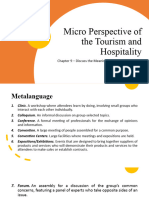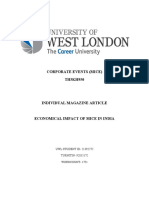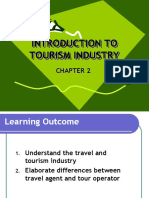0% found this document useful (0 votes)
26 views2 pagesEntrep Lesson 2
MICE stands for Meetings, Incentives, Conferences, and Exhibitions, representing a profitable sector of the hospitality industry focused on organizing events that attract significant spending from travelers. MICE events serve as a form of business tourism, offering venues like hotels and convention centers opportunities to showcase their services while boosting local economies. This industry facilitates international market access and fosters connections, creating lasting impacts in the regions involved.
Uploaded by
gcabanadaCopyright
© © All Rights Reserved
We take content rights seriously. If you suspect this is your content, claim it here.
Available Formats
Download as DOCX, PDF, TXT or read online on Scribd
0% found this document useful (0 votes)
26 views2 pagesEntrep Lesson 2
MICE stands for Meetings, Incentives, Conferences, and Exhibitions, representing a profitable sector of the hospitality industry focused on organizing events that attract significant spending from travelers. MICE events serve as a form of business tourism, offering venues like hotels and convention centers opportunities to showcase their services while boosting local economies. This industry facilitates international market access and fosters connections, creating lasting impacts in the regions involved.
Uploaded by
gcabanadaCopyright
© © All Rights Reserved
We take content rights seriously. If you suspect this is your content, claim it here.
Available Formats
Download as DOCX, PDF, TXT or read online on Scribd
/ 2








